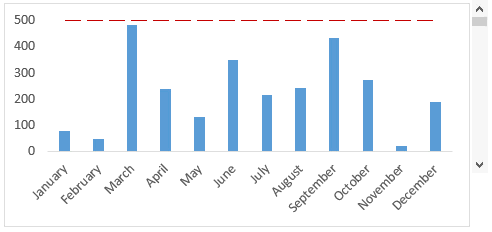Integrasi Nilai Budaya Keluarga ke Dalam Pembelajaran Sekolah: Studi Kasus pada Siswa Multikultural di Kota Mataram
Abstract
This study aims to examine how family cultural values are integrated into school learning processes within the context of multicultural students in the city of Mataram. Using a descriptive qualitative approach and a case study design in selected primary and secondary schools, the research explores teachers’ strategies, parental involvement, and school environment dynamics in embedding local cultural values into the curriculum and instructional practices. The findings reveal that integrating family cultural values—such as mutual cooperation, respect for elders, and social responsibility—can significantly enhance student character development and build a meaningful bridge between home and school life. Effective strategies include contextual learning, cultural dialogue, and active parental participation in school activities. However, the implementation of such integration faces structural challenges, including limited policy support, insufficient teacher training, and a lack of local-based learning resources. Therefore, systemic support from schools and educational authorities is needed to promote a more culturally responsive education within multicultural communities.References
Banks, J. A. (2010). Multicultural Education: Issues and Perspectives (7th ed.). Hoboken, NJ: Wiley.
Banks, J. A. (2019). An Introduction to Multicultural Education (6th ed.). Boston: Pearson.
Epstein, J. L. (2018). School, Family, and Community Partnerships: Preparing Educators and Improving Schools. New York: Routledge.
Fullan, M. (2007). The New Meaning of Educational Change (4th ed.). New York: Teachers College Press.
Gay, G. (2010). Culturally Responsive Teaching: Theory, Research, and Practice (2nd ed.). New York: Teachers College Press.
González, N., Moll, L. C., & Amanti, C. (2005). Funds of Knowledge: Theorizing Practices in Households, Communities, and Classrooms. Mahwah, NJ: Lawrence Erlbaum Associates.
Hoover-Dempsey, K. V., & Sandler, H. M. (2005). Final Performance Report for OERI Grant
Johnson, E. B. (2002). Contextual Teaching and Learning: What It Is and Why It’s Here to Stay. Thousand Oaks, CA: Corwin Press.
Lickona, T. (2004). Character Matters: How to Help Our Children Develop Good Judgment, Integrity, and Other Essential Virtues. New York: Touchstone.
Moll, L. C., Amanti, C., Neff, D., & González, N. (1992). Funds of Knowledge for Teaching: Using a Qualitative Approach to Connect Homes and Classrooms. Theory into Practice, 31(2), 132–141.
Nieto, S. (2010). The Light in Their Eyes: Creating Multicultural Learning Communities (10th Anniversary ed.). New York: Teachers College Press.
Tilaar, H. A. R. (2015). Perubahan Sosial dan Pendidikan: Pengantar Pedagogik Transformatif untuk Indonesia. Jakarta: Grasindo.
UNESCO. (2015). Rethinking Education: Towards a Global Common Good? Paris: UNESCO Publishing.
Vygotsky, L. S. (1978). Mind in Society: The Development of Higher Psychological Processes. Cambridge, MA: Harvard University Press.
Banks, J. A. (2019). An Introduction to Multicultural Education (6th ed.). Boston: Pearson.
Epstein, J. L. (2018). School, Family, and Community Partnerships: Preparing Educators and Improving Schools. New York: Routledge.
Fullan, M. (2007). The New Meaning of Educational Change (4th ed.). New York: Teachers College Press.
Gay, G. (2010). Culturally Responsive Teaching: Theory, Research, and Practice (2nd ed.). New York: Teachers College Press.
González, N., Moll, L. C., & Amanti, C. (2005). Funds of Knowledge: Theorizing Practices in Households, Communities, and Classrooms. Mahwah, NJ: Lawrence Erlbaum Associates.
Hoover-Dempsey, K. V., & Sandler, H. M. (2005). Final Performance Report for OERI Grant
Johnson, E. B. (2002). Contextual Teaching and Learning: What It Is and Why It’s Here to Stay. Thousand Oaks, CA: Corwin Press.
Lickona, T. (2004). Character Matters: How to Help Our Children Develop Good Judgment, Integrity, and Other Essential Virtues. New York: Touchstone.
Moll, L. C., Amanti, C., Neff, D., & González, N. (1992). Funds of Knowledge for Teaching: Using a Qualitative Approach to Connect Homes and Classrooms. Theory into Practice, 31(2), 132–141.
Nieto, S. (2010). The Light in Their Eyes: Creating Multicultural Learning Communities (10th Anniversary ed.). New York: Teachers College Press.
Tilaar, H. A. R. (2015). Perubahan Sosial dan Pendidikan: Pengantar Pedagogik Transformatif untuk Indonesia. Jakarta: Grasindo.
UNESCO. (2015). Rethinking Education: Towards a Global Common Good? Paris: UNESCO Publishing.
Vygotsky, L. S. (1978). Mind in Society: The Development of Higher Psychological Processes. Cambridge, MA: Harvard University Press.
Published
2024-04-29
How to Cite
Irfan, M., & Wijaya, H. (2024). Integrasi Nilai Budaya Keluarga ke Dalam Pembelajaran Sekolah: Studi Kasus pada Siswa Multikultural di Kota Mataram. Kasta: Jurnal Ilmu Sosial, Agama, Budaya Dan Terapan, 4(1), 19-34. https://doi.org/10.58218/kasta.v4i1.1369
Section
Articles













